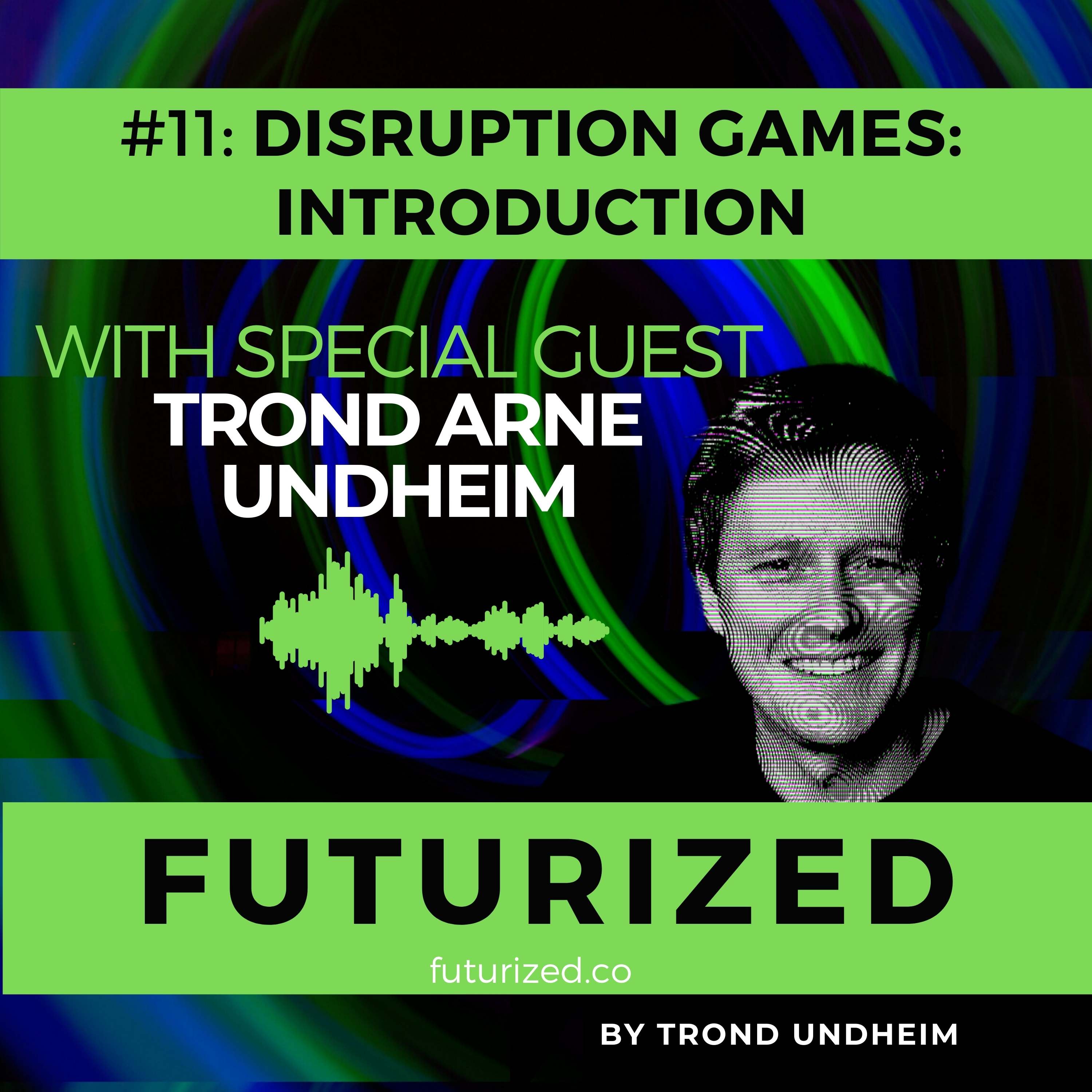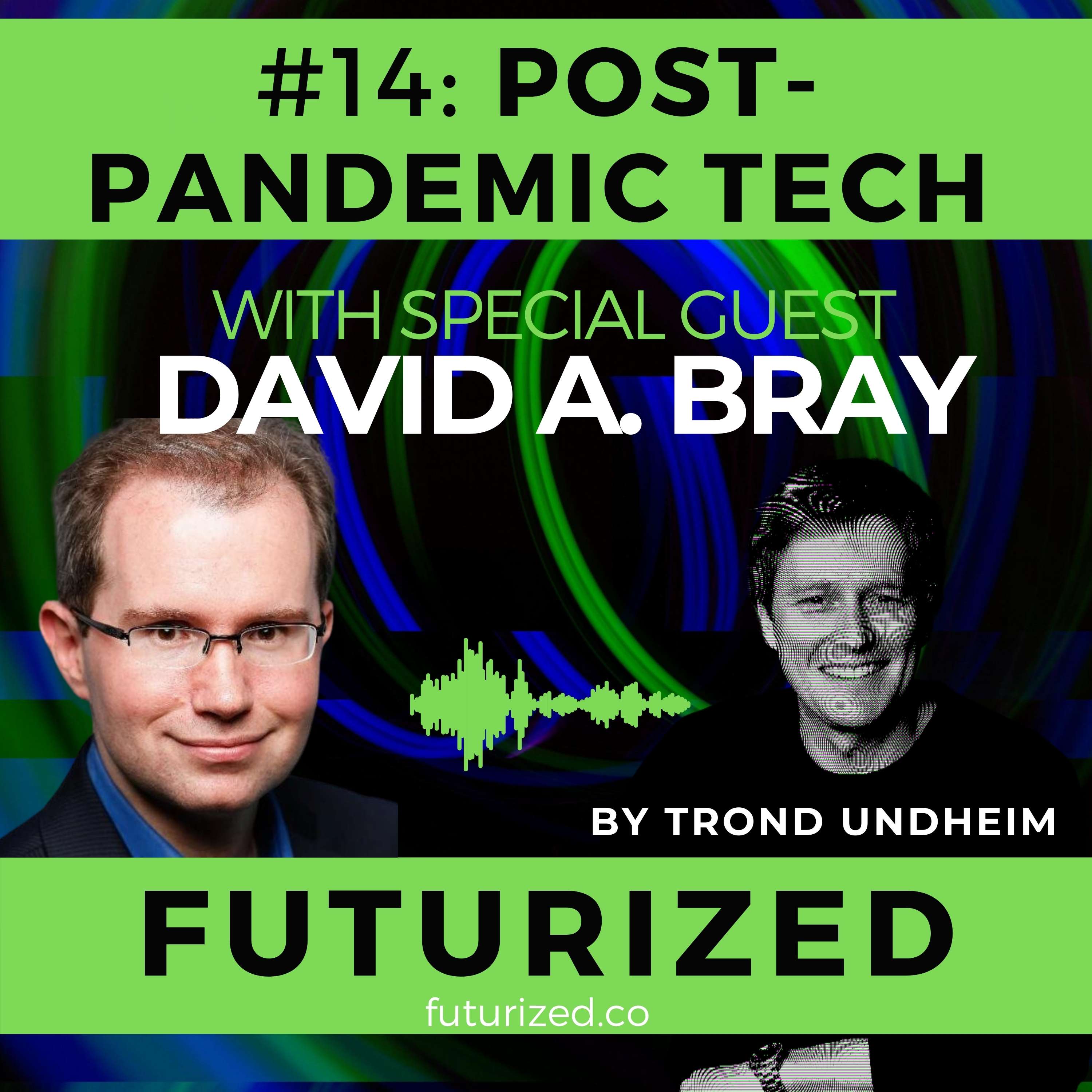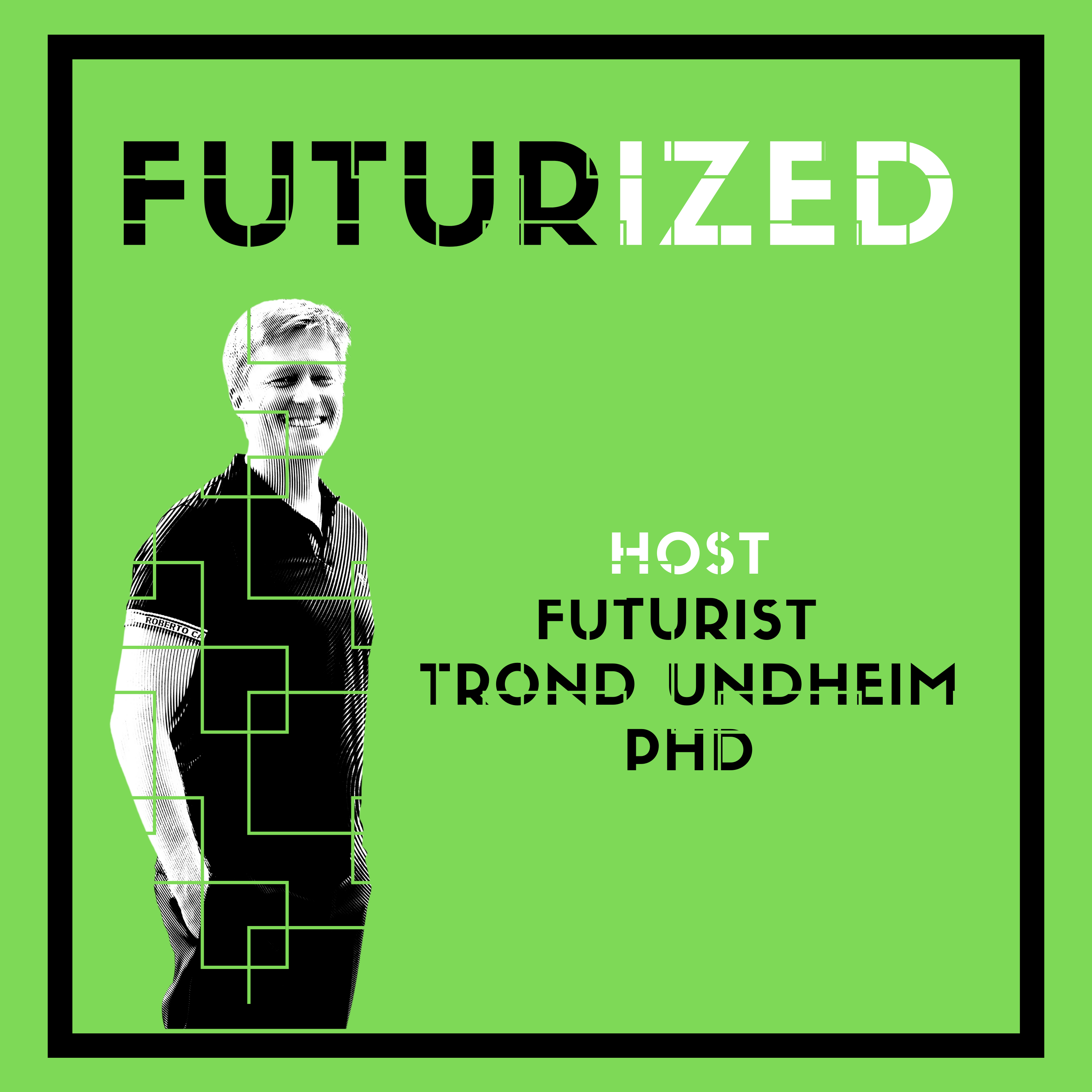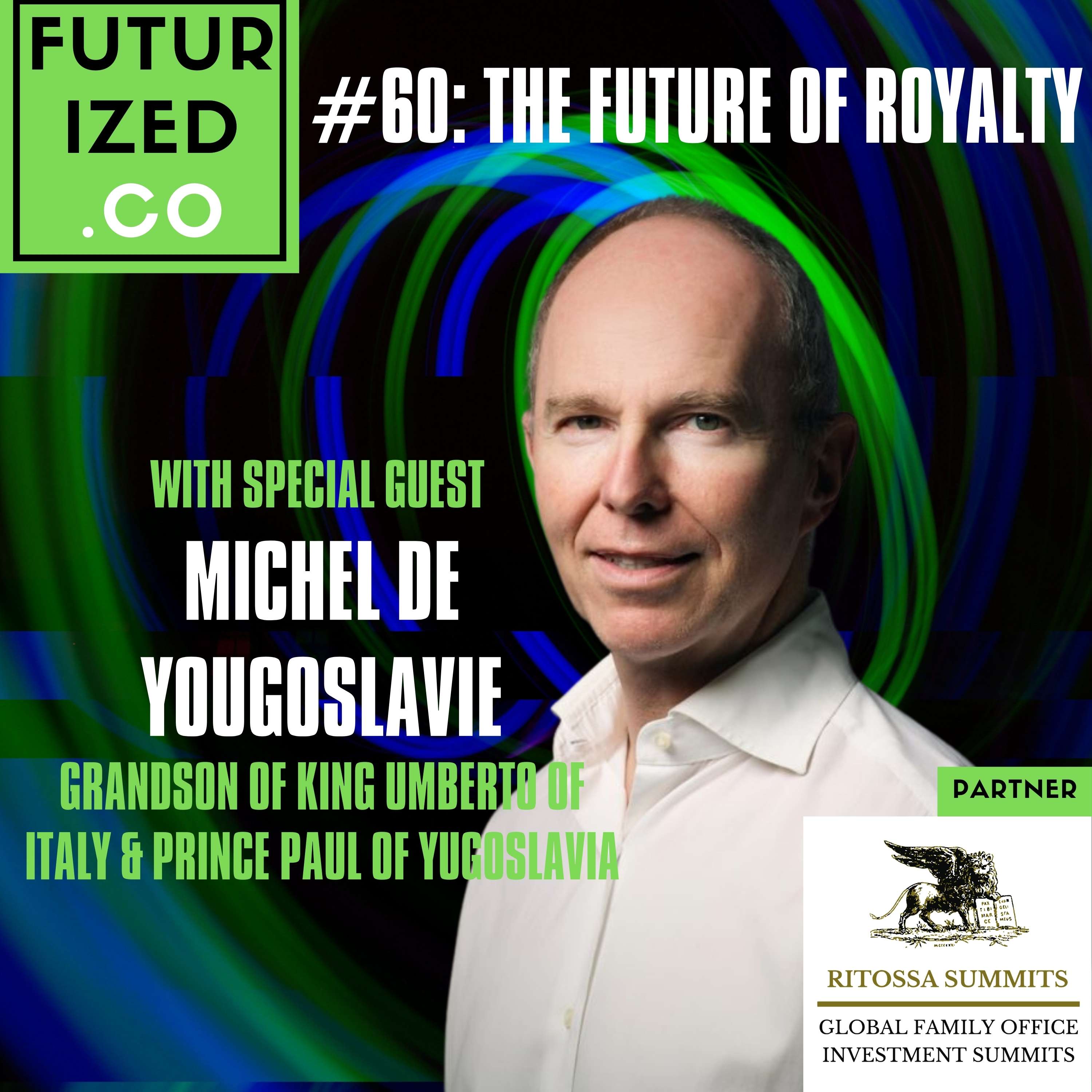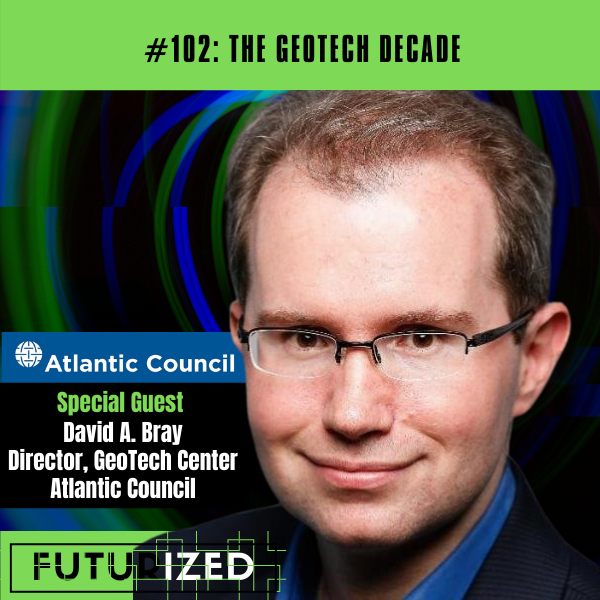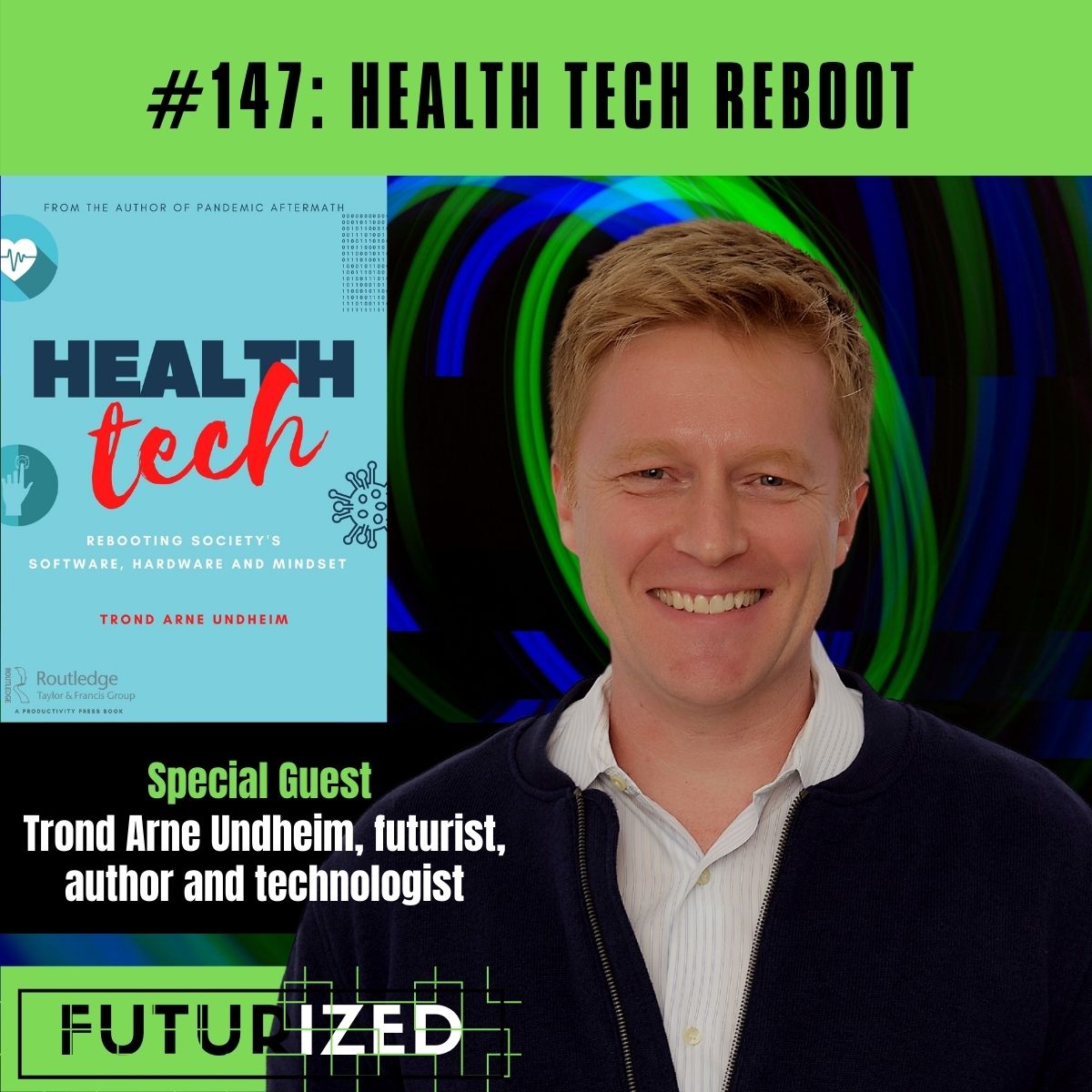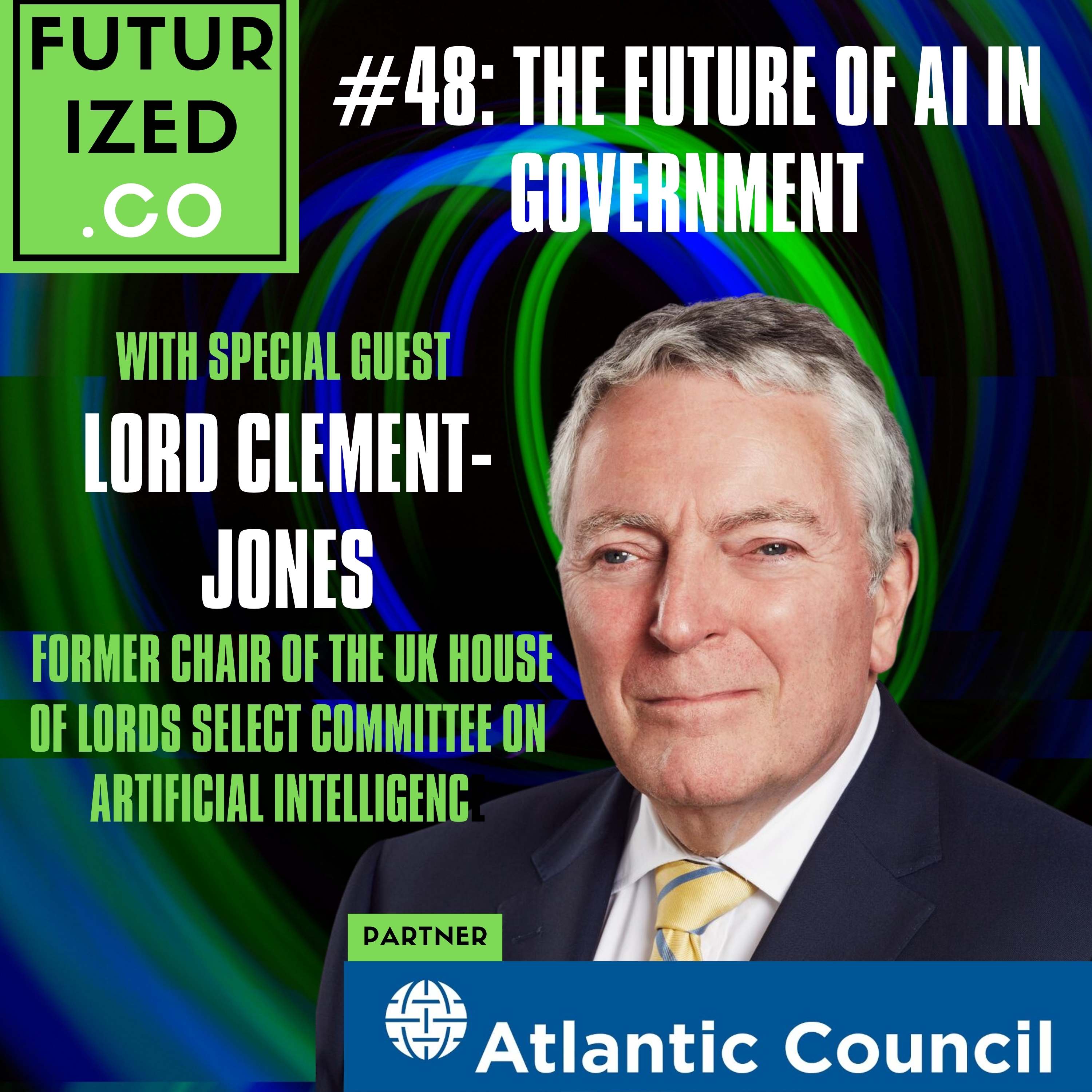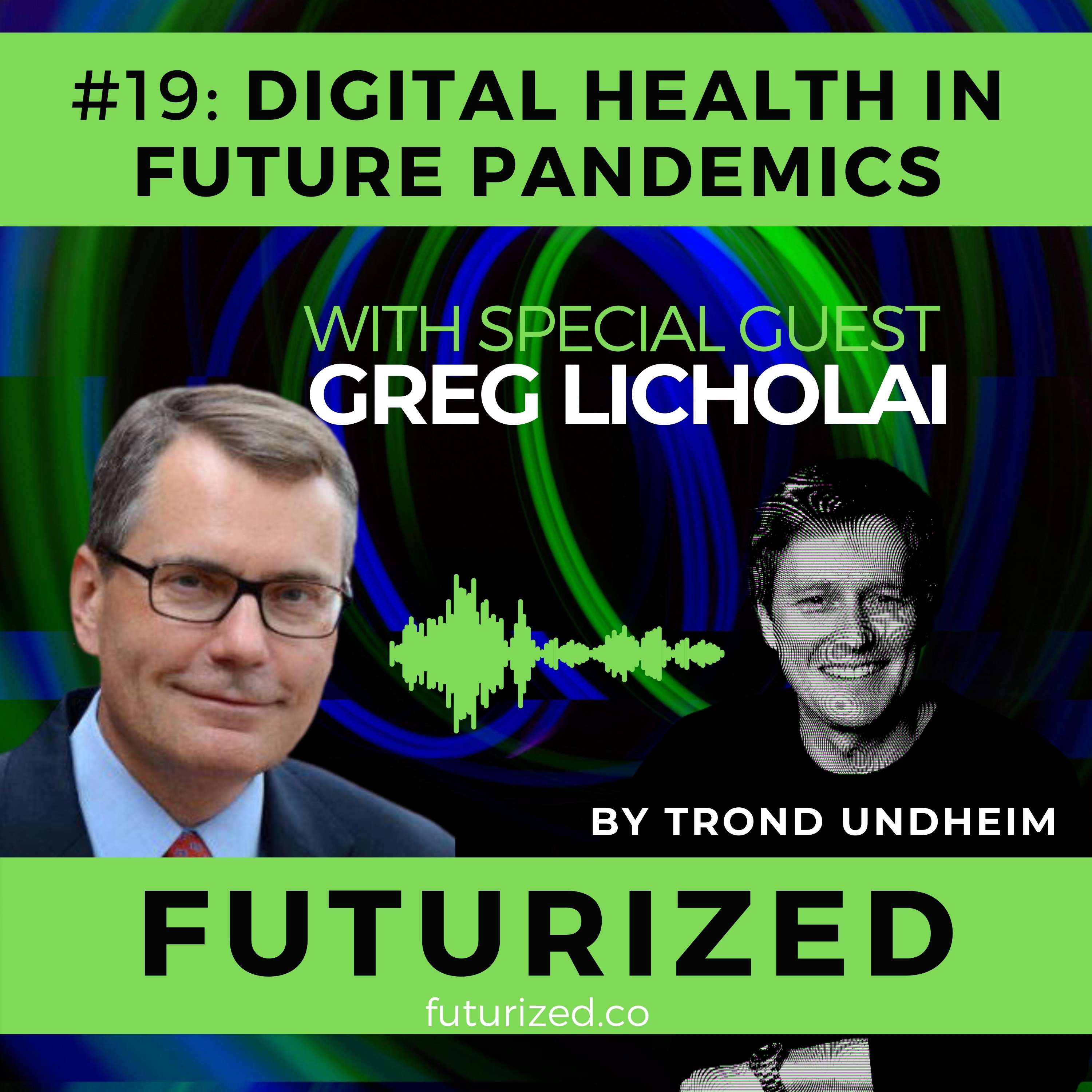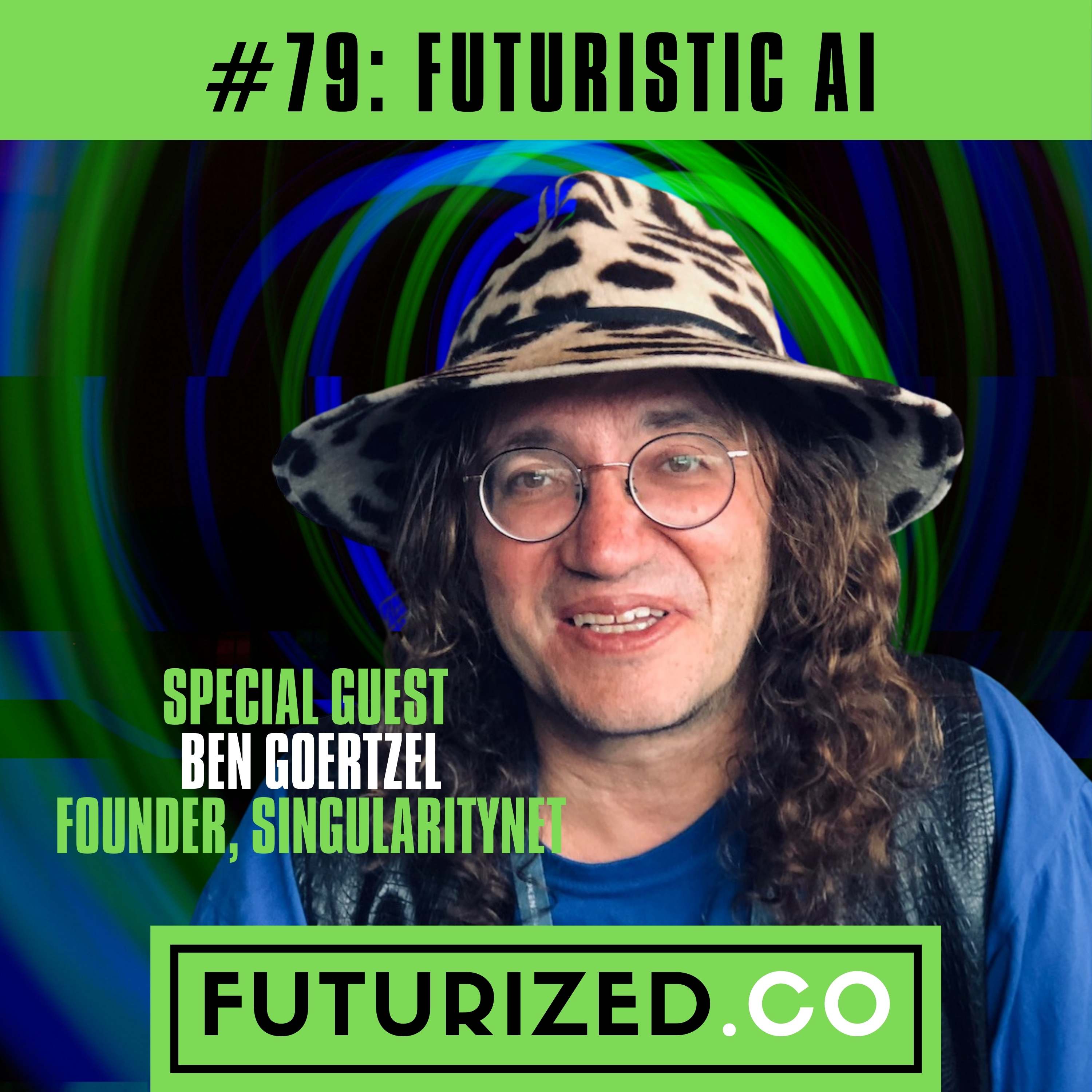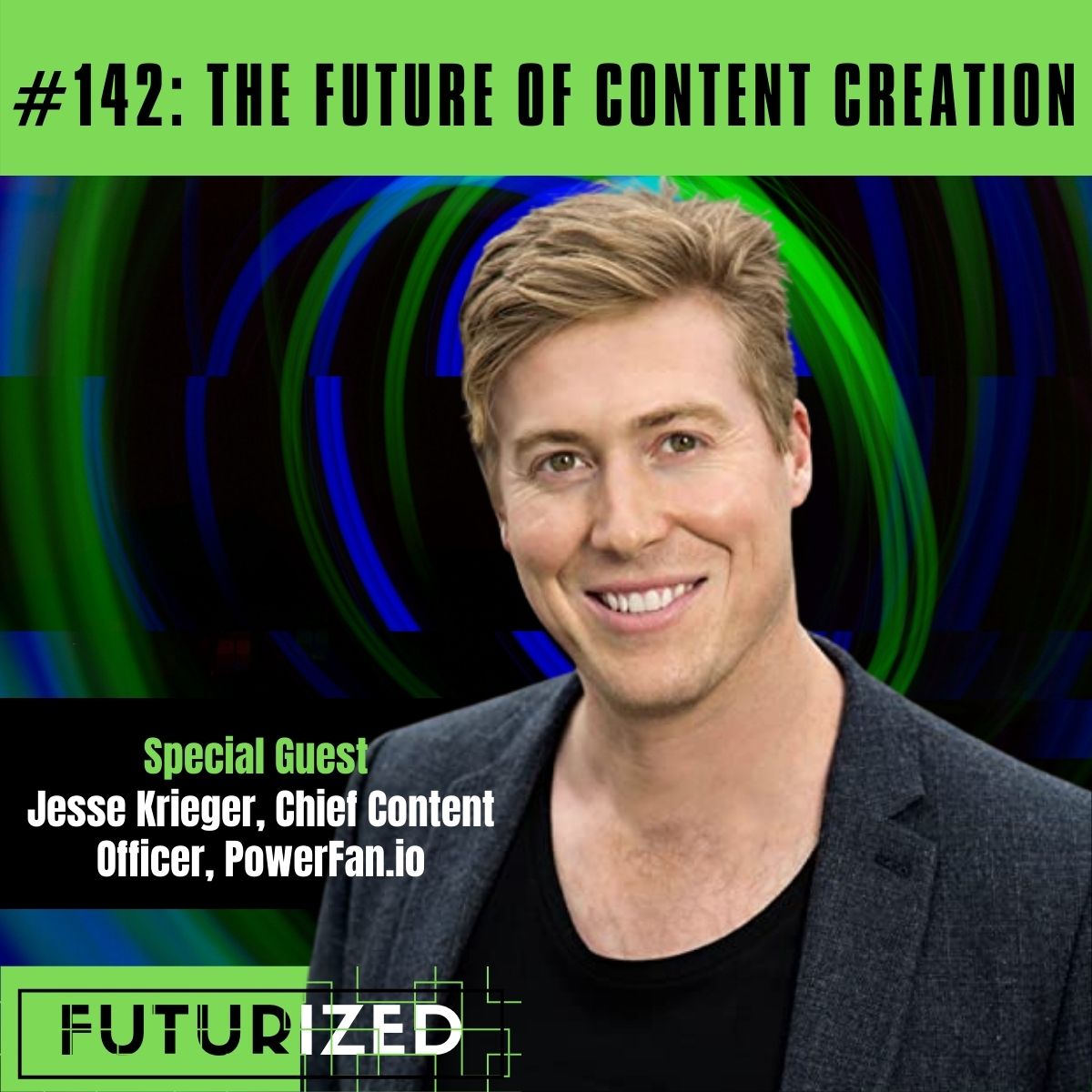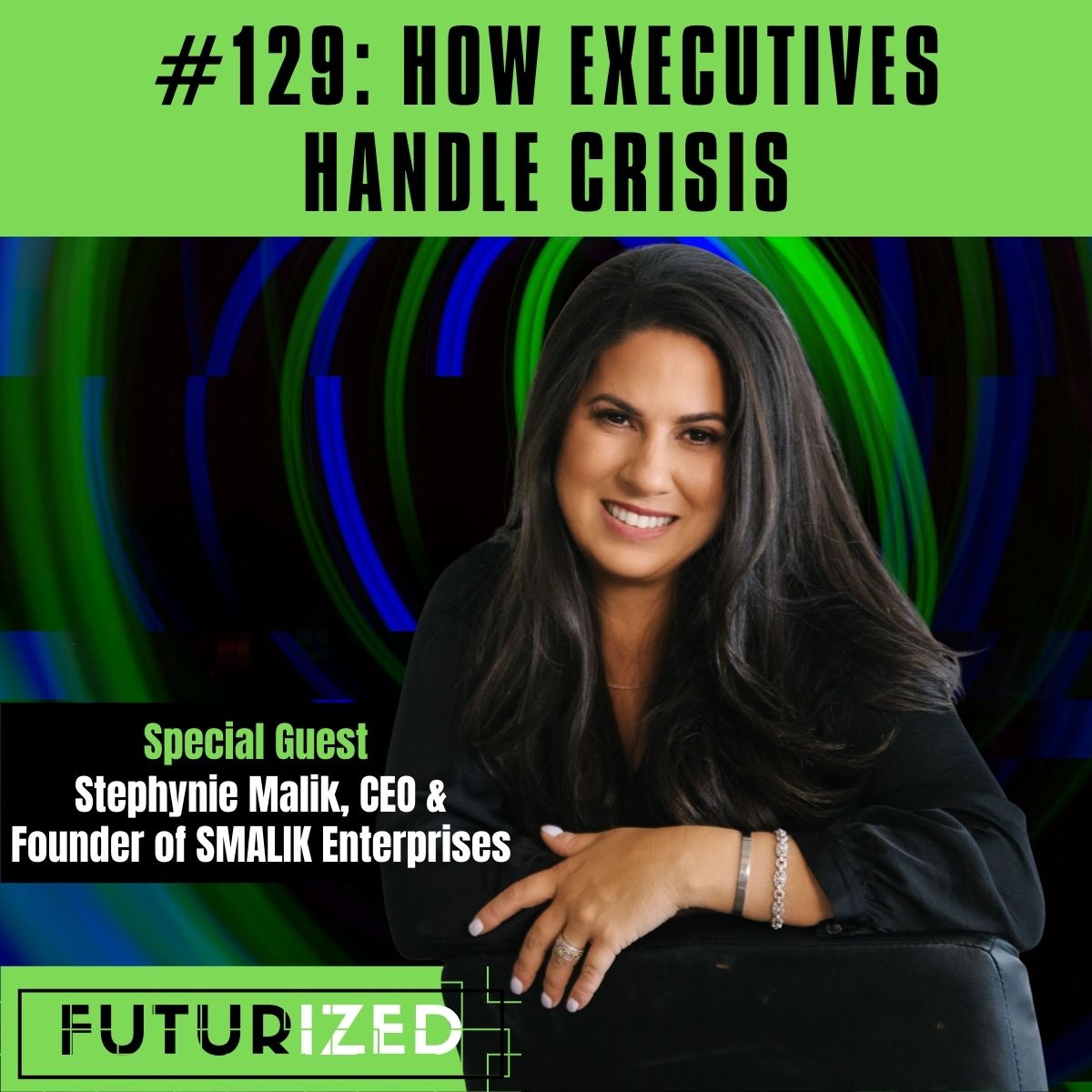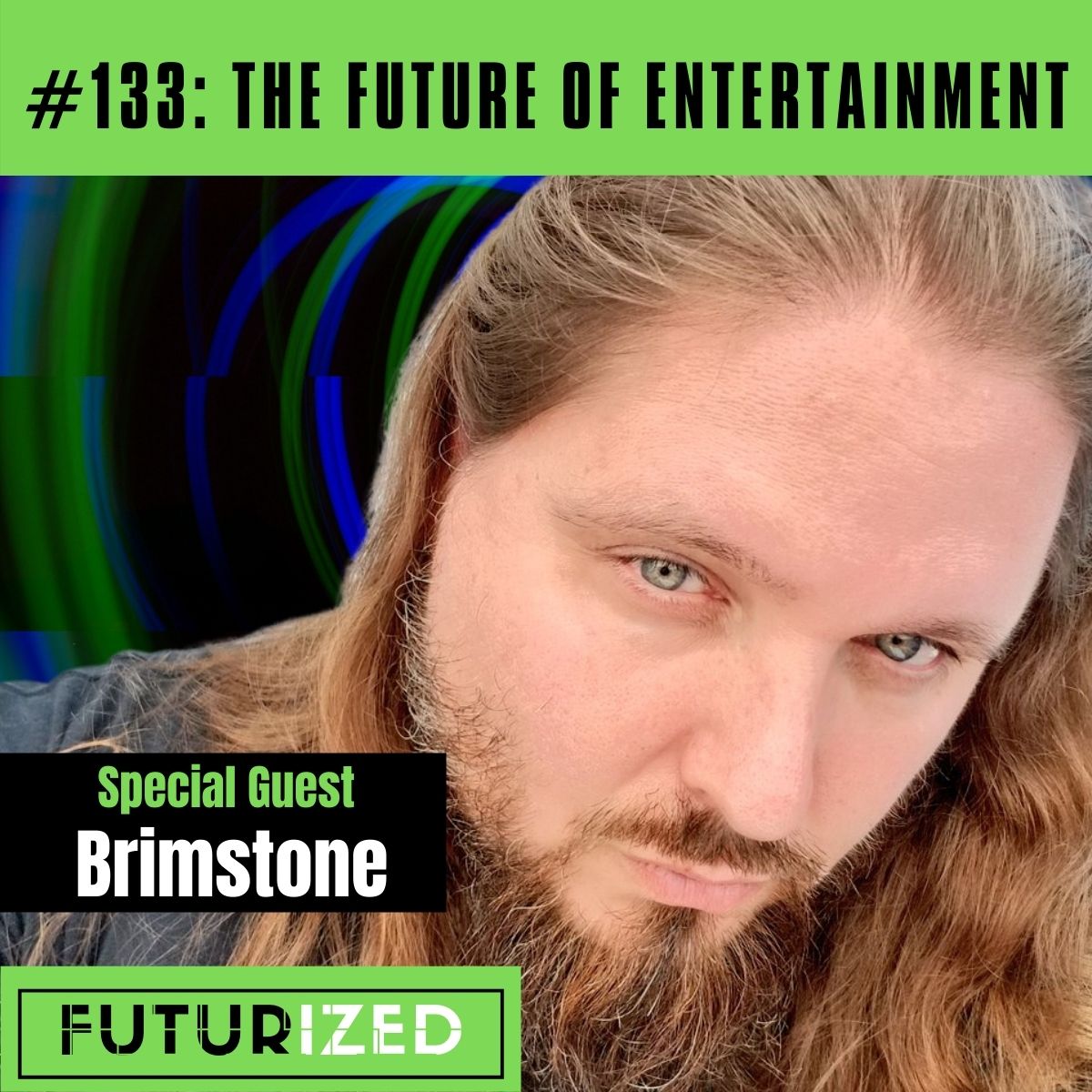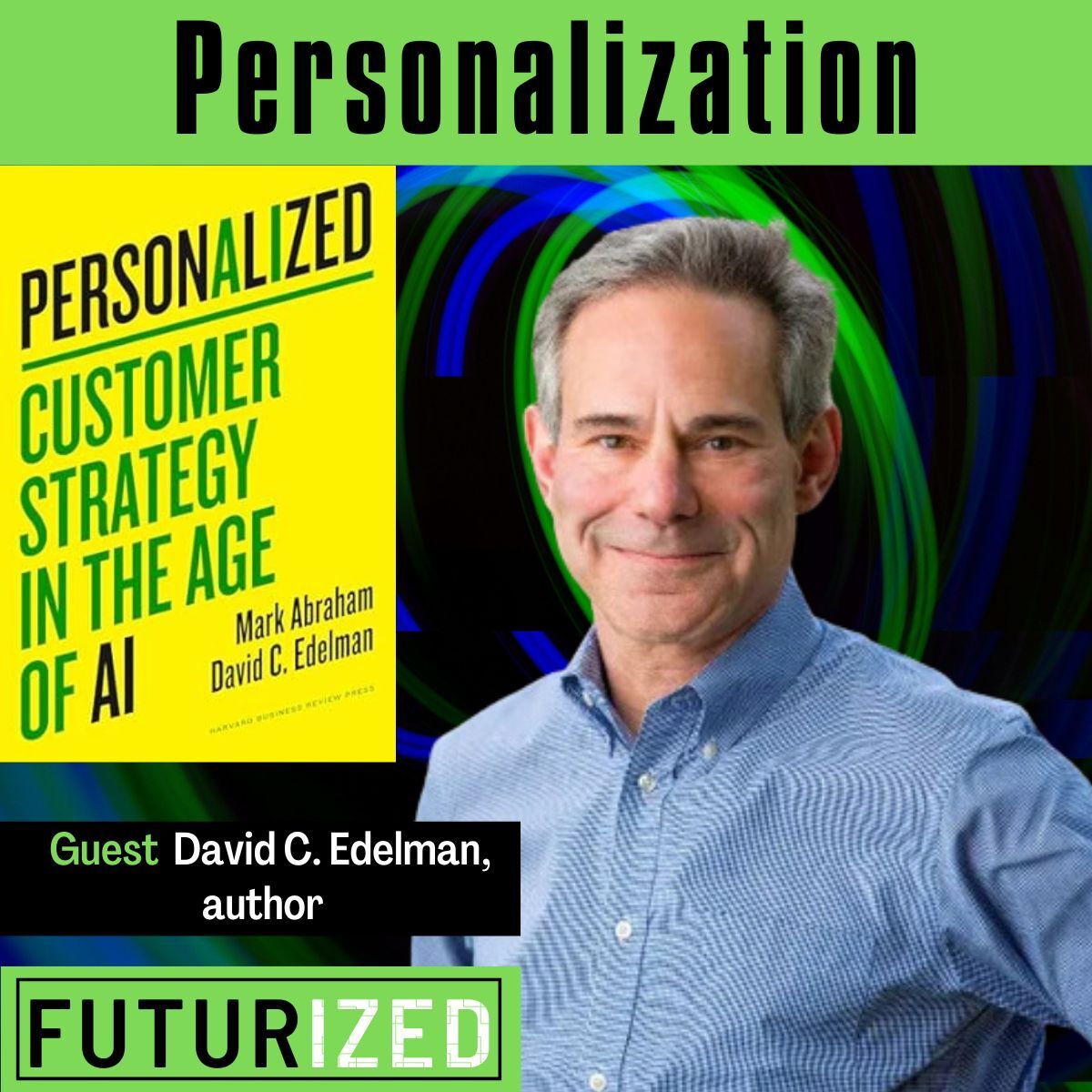2x Community Science -- Cancer Map and COVID-19 Testing in Schools
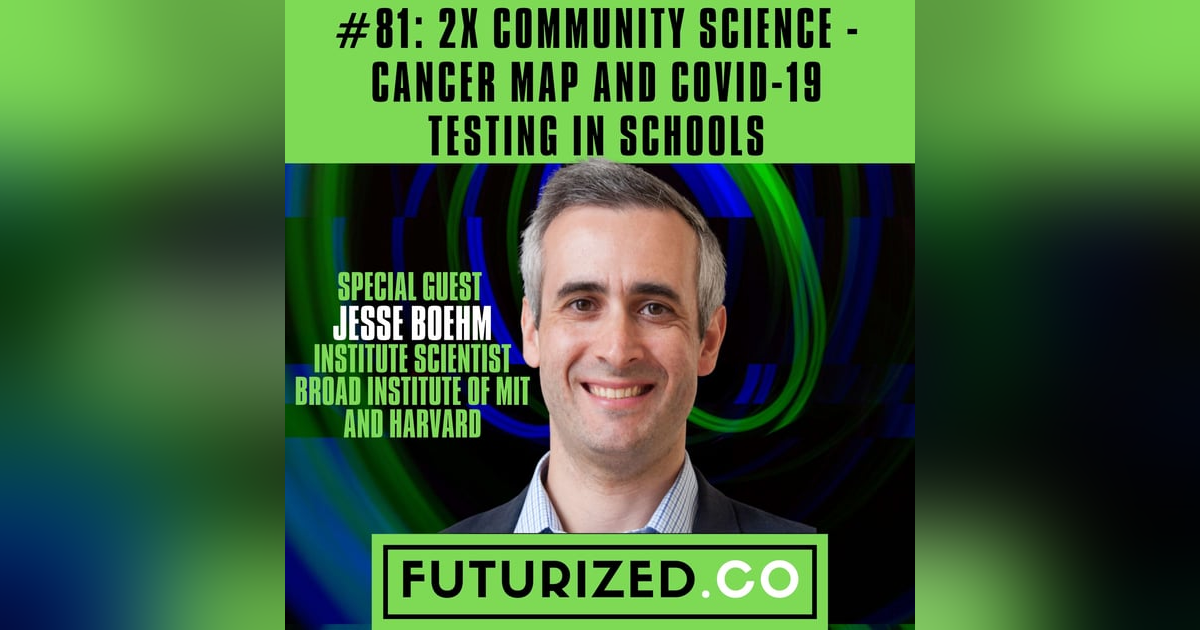
Jesse Boehm, the scientific director of the Broad Institute’s Cancer Dependency Map Initiative and an institute scientist at the Broad Institute of MIT and Harvard, interviewed by futurist Trond Arne Undheim.
In this conversation, they talk about mobili...
Jesse Boehm, the scientific director of the Broad Institute’s Cancer Dependency Map Initiative and an institute scientist at the Broad Institute of MIT and Harvard, interviewed by futurist Trond Arne Undheim.
In this conversation, they talk about mobilizing the unique sci-tech environment for health in Massachusetts. They discuss the Broad Institute's ethos and the Boehm Lab’s cancer collaboration for rare diseases. They cover the Healthtech Map, Test & Trace efforts including a 3-month pilot program of weekly COVID testing for certain students and staff. and how it got off the ground. We look at Wellesley Education Foundation (WEF) COVID-19 Innovation Fund and what is has accomplished. Finally, we discuss the future of healthtech and the future of community scientists and ‘community resource maps’, towards Science 2.0.
The takeaway is that community science is crucial at this juncture in history. We can no longer take for granted that people listen to experts, nor should we. Rather, it needs to be a dialogue. Trust is and should be contingent on proving value and disclosing evidence and rationale. Also, the data is increasingly all of us, so we are the science. This is a very different future than many had imagined. Yet, it might be the only one available.
After listening to this episode, check out Jesse Boehm's online profile, the Broad Institute’s Cancer Dependency Map Initiative and The Wellesley Education Foundation (WEF) COVID-19 Innovation Fund:
- Broad Institute’s Cancer Dependency Map Initiative https://www.broadinstitute.org/cancer/cancer-dependency-map
- Boehm Lab http://www.boehmlab.org/
- Jesse Boehm (@boehmjesse) https://www.linkedin.com/in/jesse-boehm-0881145/
- The Wellesley Education Foundation (WEF) COVID-19 Innovation Fund https://www.wellesleyeducationfoundation.org/innovation-fund
Thanks for listening. If you liked the show, subscribe at Futurized.co or in your preferred podcast player, and rate us with five stars. If you like this topic, you may enjoy other episodes of Futurized, such as episode 55 AI for Medicine, episode 19 on Digital Health in Future Pandemics, episode 26 How to Write a book on the Future of Healthcare, and episode 67 on The Future of Longevity Futurized—preparing YOU to deal with disruption.
Community Science_mixdown
Trond Arne Undheim, Host: [00:00:00] Futurized goes beneath the trends to track the underlying forces of disruption in tech policy, business models, social dynamics, and the environment. I'm your host, futurist and author can episode 80. One of the podcasts as topic is two X community science cancer map. And COVID-19 testing in schools. Our guest is Jesse Boehm, the scientific director of the road, institutes cancer dependency map initiative, and an Institute scientist at the broad Institute.
[00:00:30] MIT. And in this conversation, we talk about mobilizing the unique Sci-Tech environment for health. In Massachusetts, we discussed the road institutes, ethos, and a Boehm labs, cancer collaborations for rare diseases. We discussed the health tech map test and trace efforts and the pioneering three month pilot program of weekly COVID testing.
[00:00:55] For certain students and staff starting in Wellesley and moving towards other school districts in Massachusetts, we discussed how we got off the ground, the role of the Wellesley education foundation and as their COVID-19 innovation fund, what has been accomplished. We also discussed the future of health and the future of the community scientists and community resource maps towards science 2.0.
[00:01:24] Jesse, how are you today
[00:01:26] Jesse Boehm, Institute Scientist, Broad Institute: [00:01:26] doing great, really excited to to be here. It's pleasure to speak with you.
[00:01:29]Trond Arne Undheim, Host: [00:01:29] Look, I think this is going to be an interesting episode Jesse, you, and I know each other from from the school system and from the ski slopes, but but you're a pretty serious guy.
[00:01:37] So let's talk about some science here. I've read up on you too. So you're the scientific director of the Brode institutes cancer dependency map initiative, which we'll get to you are involved on a host of other Brody Institute activities, including the cancer cell line factory and the cancer model development center.
[00:01:58] And I wanted to bring out and have you talk for a little bit of a second about this fact that the broad Institute of MIT and Harvard, it's a kind of a unique construction, this thing they wanted to put both those brand names in the center. And you also managed to do this, right? You got a bachelor's from MIT and a PhD from Harvard.
[00:02:16]You're all steeped in these massive Ivy league towers. So I have massive respect for you
[00:02:22] Jesse Boehm, Institute Scientist, Broad Institute: [00:02:22] now. No, I've certainly been really. I'm fortunate to grow up in this environment. Cambridge is in many ways, the, one of the epicenters of the world of biotechnology and cancer biology, and I've just really wanted to plant roots and drive that forward as much as possible.
[00:02:39] Yeah. I think Harvard and MIT have a. 350 year history of kind of not collaborating extensively with each other. And after the human genome project at the early stages of the broad Institute, originally the Whitehead genome sequencing center here in Kendall square. That project, the public face of the human genome project in 2001 really showed the power of scientists in academia, working together to do something that previously had only been possible in the private sector, in this race to sequence the human genome showed what could be possible.
[00:03:14] Now, if you turn that collaborative firepower and that technology firepower. Towards understanding and curing disease. And so it was around this time where Eric Lander, the director of the Brode, Eli and Edith Brode. These philanthropists from Los Angeles came together to realize that we shouldn't end the human genome project.
[00:03:33] We should just apply this firepower towards disease. And so the Brode got formed to try to drive that revolution, bringing Harvard and MIT and the Harvard teaching hospitals together in the early two thousands. And I've been at the road for 15 years. Ever since. And what we try to do is to do what, many folks outside of science, believes just happens that scientists work together regardless of their institutions, put down whatever prejudices or biases or territory they have and work together to, to fight some of these diseases that are affecting humanity.
[00:04:07] And that's. We actually tried to realize at the Brode where a community, a cross cutting horizontal, we're a physical building, but also a virtual community of researchers, 3000 researchers from across the Boston area. And we come together in the form of collaborative teams to try to tackle really challenging problems that can't really be solved by academics, working in labs individually because scale and professionalism is needed.
[00:04:33] And they can't be solved by industry working on their own sometimes because there isn't a profit motive. And so whether it's curing cancer or fighting COVID or combating malaria interdisciplinary teams of researchers need to come together to fight those challenges. And that's one of the things that I've been fortunate to do in the space of cancer biology.
[00:04:53] Yeah, Jesse.
[00:04:54]Trond Arne Undheim, Host: [00:04:54] I think that's super interesting because, you make a good point, even at MIT, which I know well, they typically, yeah, you have these named labs and you have an individual who's lucky enough to get well, mostly tenured people but also others to just build up their lab around their name.
[00:05:09] And whilst that might be great for the individual. And if they're lucky enough to be good at fundraising, they can build a very significant activity. But it stands and falls on that individual person and their abilities and, to attract, PhD students and then also affiliated faculty, but it's really not a collaborative approach in that, in the way that you describe.
[00:05:32] And I want you to. Tell me a little bit how your projects at the road are different then w if you would have run them even at MIT or at Harvard, because especially these two cancer projects, and then we'll get to some of the other things that you have been doing as a kind of fallout of your professional identity here.
[00:05:52]But tell me what is different about, for instance, the cancer maps and this idea of collaborating even outside of academia?
[00:06:00]Jesse Boehm, Institute Scientist, Broad Institute: [00:06:00] Science is really all about incentives and the incentives that we impose upon researchers. Induce certain behaviors. And so the national incentives for most scientists are to compete for a small pot of funds and to write grants that you have a 10% chance of getting funded over a 12 month sort of period.
[00:06:21] And so all the incentives are to keep data to yourself. Pursue this mythology of an independent researcher, with their own little territory working on their own. And unfortunately that's the way science has been structured for 80 years. And when we thought of science has one little problem at a time that structure and those incentives fit what was needed now that we have.
[00:06:42] These ambitious challenges like the, we have the human genome and we want to use it to fight cancer. Or we have a massive diagnostic challenge in the case of Corona virus, we actually need to provide different incentives teams to come together to solve challenges and most scientists at the beginning of their career, when they're 20 or 25.
[00:07:03] They want to work together. They're sharing information about themselves on Facebook. They're bringing people together. They don't care about the rest of the world. They just want to work together. But somewhere along the way, when they become 40, 50, 60, they realize that they actually can't work together.
[00:07:17] They have to work individually. So what we try to do at the Brode, what I try to do in my lab in our cancer projects is to preserve that naivete, that youthful naivete, as long as possible, because if actually young people want to cure cancer, They don't want to compete with other cancer research as they actually all frequently have been touched by cancer, a family member, a parent someone they treated in clinic and they actually want to make a difference.
[00:07:41] And so what we try to do is to preserve that as much as possible in the, this is a really interesting moment for cancer. I'll just mention because what's needed. Is very interdisciplinary. You don't, it's not about genetics. It's not about math. It's not about computer science. It's not about applied physics.
[00:07:58] It's about the integration of all of those activities and what we're trying to do in our laboratory. And as part of this big scientific project called the dependency map is to bring together these disciplines and do something in the laboratory. At a certain scale that would only have been possible through massive international activities in the past.
[00:08:20] And so what we do is we give cancer patients anywhere in the United States, the opportunity after they're diagnosed with their disease to consent online, to join our research study, a little box goes out a bit of their tumor goes into that box and comes overnight. To our lab. And then we try to grow those cells in a dish because what we're trying to do is to test every possible drug and use this new CRISPR technology to cut every gene one by one and systematically find all of the ways of killing every type of cancer.
[00:08:55] We call that. A dependency map, and you can only do that in the lab. You can't give every drug to every patient randomly around the world in the clinic, but we can do that in the lab. And so this project involves thousands of these cells that grow in dishes, lots and lots of drugs, every drug ever tested against any disease and CRISPR.
[00:09:13] And we try to produce this map. And this map is really important for guiding drug companies small and large to work on the best targets and to repurpose. New therapies. And so this is a foundational activity for the field.
[00:09:27] Trond Arne Undheim, Host: [00:09:27] Look, I love the way to describe it because on your website, there's also other ways to describe this.
[00:09:32] And, I think the overall domain, right? Functional genomics, it's not really two terms that are so easily digestible. Really?
[00:09:40] Jesse Boehm, Institute Scientist, Broad Institute: [00:09:40] Yeah. It's hard. If you're a cancer patient, when you were a cancer patient, maybe 20 years ago, you would go to the clinic and your doctor would say, Oh, you have breast cancer.
[00:09:48]Here's some highly toxic drug. So that was before what we call precision medicine, which is this current revolution. Now we have this belief and we see the evidence of it working. After the human genome that you can analyze the broken genes and your tumor and prescribe a therapy that works for you.
[00:10:06] And that works for about 25% of cancer patients today. It's really amazing when it does work, but there's 75% where it doesn't work. And that's what we have to do as a field to make sure that every patient can reap the benefits of precision medicine.
[00:10:20] Trond Arne Undheim, Host: [00:10:20] Just at the surface of it before we move to the other topic that I really also wanted to discuss.
[00:10:25]So the price has really dropped quite a bit for full genome sequencing. And I think there was a 2014 kind of, I dunno if it's an emotional or if it's a truly Consequential milestone where I believe Illumina reached a 1000 yeah. Dollar price tag for, and then the price war started with the Chinese and this, and then Veritas, I believe you came in and have done various experiments claiming that, the price will soon be down into $200.
[00:10:54] How important is something as simple as. The price of a test for both, I guess the viability of this as a methods throughout medicine. And in terms of the visibility of this approach, among. Everybody.
[00:11:09] Jesse Boehm, Institute Scientist, Broad Institute: [00:11:09] Yeah. New technologies as they're applied to the clinic, go in cycles first, you have the initial research demonstration that something is possible.
[00:11:19] In the case of the human genome, it was spending $6 billion to show that you could do it once, way before anyone had any sense that this is what the future was going to look like. And then instead of just doing one genome, then you could apply that in the laboratory as costs began to drop. Of the DNA sequencing technology.
[00:11:38] You could begin to do that in the research laboratory with thousands of genomes and thousands of cancer genomes and start to collect all of these broken genes that cause cancer. And then as the price dropped even further, you could begin to think about applying that clinically. And so now that we're at about a thousand dollars genome, It's possible.
[00:11:57] And there were some regulatory changes a few years ago that is now making this even more widespread. If you're a cancer patient with advanced metastatic disease or drug resistant disease for a few hundred dollars up to a thousand dollars, you can have your genetic profile sequence. So this democratization over a 20 year period of an initial vision.
[00:12:18] Through a scale-up phase in the laboratory and the democratization to the sense that now anybody can have that for a small amount of funds. Is that kind of hope hype cycle that new technologies go through the problem is that even a free genome isn't enough to cure cancer. I can. Tell or a clinician can tell a patient all of the broken genes in his or her tumor, but for only 25% of patients, can that clinician actually act on that information?
[00:12:46] And why
[00:12:46] Trond Arne Undheim, Host: [00:12:46] is that? Because these medicines are too. Rare to have been commercially developed as
[00:12:51] Jesse Boehm, Institute Scientist, Broad Institute: [00:12:51] treatments and challenge. The average tumor might have 72 broken genes and every tumor might have a different 72 broken genes. And we only have about 200 cancer drugs in aggregate. So if you see 72 broken genes in a tumor, we can now say.
[00:13:08] Maybe one of these 18 drugs might work, but we don't exactly know which of the 18 drugs. Sometimes they've been tested for a different tumor type, but we don't know for sure it's in this tumor type. And sometimes the information from the genome hasn't been very well studied. So we don't really know. So it's an interpretation challenge.
[00:13:25] So what we think needs to be done. Is to be systematic about testing every drug and cutting every gene with CRISPR systematically in the lab. That's this dependency map, growing cells in every cell from every tumor now assessing 30,000 different ways of killing it. And as you do that patterns emerged.
[00:13:47] And then in the future in 2030, When a patient comes into the clinic, the genome will be $10. So we'll be able to sequence the genome. And because we will have this dependency map, this lookup table of all the ways of killing cancer, we'll actually be able to take those genes, look on the map and not only have the information, but also.
[00:14:07] Produce a result that will tell the patient which drugs to take. So that's this arc and that's fantastic
[00:14:13] Trond Arne Undheim, Host: [00:14:13] arc but like you said, there's only, that was surprising to me. There's only 200 cancer drugs at the moment. Are you confident that first of all, how long did it take to develop these 200?
[00:14:23]And how long is it going to remain? 200. And I guess, out of that question again, you said these 30,000 ways to kill it. How many drugs would you ideally need? Do you think. Even to just deal with these 30,000 ways. And I'm sure, within 10 years you'll find another 30,000 ways to kill these these nasty buggers, 200 drugs.
[00:14:42] That's not an enormous amount.
[00:14:44] Jesse Boehm, Institute Scientist, Broad Institute: [00:14:44] Yeah. It's an interesting question. When I say 200 drugs, some of them are. A whole bunch of different drugs with different names, but that all do the same thing. So 200 different flavors of drugs. Yeah. The average cycle from initial concept to having a drug in the clinic is, 15 or 20 years.
[00:14:59] So it's a long period of time. I think, we can look at the cycle of coronavirus vaccine development just in the last nine months. And it may be that some of the rules that are written in stone. Of how long things take, whether it's developing a vaccine or developing a cancer drug are not actually, speed of light restrictions that can't be crossed the challenge in the history of developing cancer drugs.
[00:15:23] The reason it takes so long is that most drugs fail. What we believe is if you choose the right cellular targets to begin with, and you actually know which patient populations to do your testing in, you might be able to reduce 20 years of activity to six or seven years. And there's a lot of evidence that, that actually could happen.
[00:15:42] It turns out if we look in the dependency map, if we could have chosen 20 drugs, To block 20 genes and we can choose the right 20 drugs. I can give you a set of 20 drugs and guarantee that at least one of them will work for almost every type of tumor. So it's not only a numerical challenge. It's choosing the right Achilles heels of cancer to build drugs against so that every patient will have at least one or two.
[00:16:10]Drugs that can block their tumor. So there's a there's a reduction in the complexity. Once we have the full map laid out, it's going to take 10 years and there's a whole set of challenges ahead of us. But I do think by 2030 and by 2035, we'll have many of the drugs we need to deliver the right therapies for an increasing fraction of patients.
[00:16:29] Trond Arne Undheim, Host: [00:16:29] That's fantastic. Jesse, we'll talk a little bit more about the next decade in a second, but I wanted to move to this very exciting project that you undertook together with your wife and which my kids, and many other kids are benefiting from in this very precarious moment in kind of human history.
[00:16:46] Tell me about this idea that you two got about testing and how you got to it. And w what is this idea that schools should start testing for COVID. Yeah,
[00:16:58] Jesse Boehm, Institute Scientist, Broad Institute: [00:16:58] so I think this, what we've learned is that, 10 months ago, no one knew anything about coronavirus and. Now there are some world experts. And whether one is a cancer biologist or a mathematician or anything else that transition time from being exposed to something and then actually developing some serious expertise is reduced.
[00:17:17] And so we really looked at the challenge of testing and decided to dive right in as a cancer biologist. I've always appreciated the importance of data, a clinician can't act, unless they know. What they're seeing in front of them, we need actual data. Where is the cancer? Is it coming back? How many cells are there?
[00:17:37] Which patient should I treat? In what order as scientists? We make decisions based on data. My wife, who's a high school biology teacher and myself, as we started to see how many organizations. We're making decisions about coming back to work. We realized that there were some types of organizations that like cancer scientists were making decisions based on data, private companies, often biotechnology firms and hedge funds and other things like that.
[00:18:06] They were starting to test their employees in the spring. To ensure that they had the data that would tell them that coming back to work with safe as the summer rolled on, hundreds of universities got together private universities and also private schools got together and they said, we need data also.
[00:18:26] We're not going to make decisions about whether to keep our university open or closed on a whim. We're going to make decisions based on data. And what we realized over the summer is for a number of reasons that conversation really wasn't being had in earnest in the public school setting. And we believed that it was a moral obligation.
[00:18:46] To ensure that public school students and staff in every district, across Massachusetts and across the country would as soon as possible have access to the same type of SARS, cov, two testing, weekly testing that some of our richest employers and private universities were having and that initiated what's been a five month journey that I think has put districts like ours.
[00:19:13] Really at the front lines of showcasing what's possible. But
[00:19:17] Trond Arne Undheim, Host: [00:19:17] so Jesse, the interesting thing here is I think all of us who had kids had that idea. But you're the only one that, to my knowledge, that did something about it. What is it that you guys decided that you could do and tell us a little bit about this experience and now that it seems like you can scale it up and learn from it.
[00:19:37] Where are we? So give us through the. I think this was a nice idea. And you had some insight, but this is real. You are testing kids today and, I just signed a, a testing kids to it. Yesterday
[00:19:50] Jesse Boehm, Institute Scientist, Broad Institute: [00:19:50] we implemented this, I think that the punchline is what we've been able to do in our town Tron, just to test every high schooler, every middle schooler and every staff member weekly for the last 10 consecutive weeks with 80% participation.
[00:20:05] We've prevented a major outbreak we've shut and open schools using data. And our district is one of several across that are becoming templates across Massachusetts and the nation for how testing could be rolled out. So I think what you have to realize is that at the Brode, we like to tackle challenges that seem impossible.
[00:20:25] We, we all know that real revolutions. Happen, real scientific revolutions happen when someone has a great idea, but they're not swayed by the complexity. They take that idea, whether it's putting someone on Mars or doing COVID testing in public schools. And then they break that idea down into a set of components that are needed to get from where you are today to actually implementing that idea.
[00:20:52] And that's what we did over the summer, bringing scientists together to create recommendations, creating finance, bringing financial experts together, to think about how to finance a testing program. Bringing MIT, Sloan business school leaders together, including Simon Johnson and economist from MIT and others to think about the operational aspects and then someone needed to volunteer their school district to be the Guinea pig.
[00:21:17] So we decided to do that in Wellesley. We organized within our town, but we realized as a wealthy district, we had an obligation to move together. As a group of districts together. And so we built a collaborative of six districts that are now have been working together to implement public school testing.
[00:21:36] Wellesley is a bit further ahead than some of the others, but each of them has a recipe. Each of them has been implemented testing programs in different sort of ways. And we're really. We're really proud of what's been accomplished thus far. So I
[00:21:48] Trond Arne Undheim, Host: [00:21:48] have two thoughts around this right now. The one is when you explain it, it sounds so intuitive and easy.
[00:21:53] It's like we just put together the, these people and then we just test it and this is also, yeah, exactly. So this is also late in the day. And at least for me, since I have seen that this testing is there, you start thinking of course it's there. But tell me why was this so difficult?
[00:22:07]So there were thoroughly, this is the first time this has ever happened. Data-driven decision-making in a school system like
[00:22:14] Jesse Boehm, Institute Scientist, Broad Institute: [00:22:14] this. So I think that the biggest challenge is that the average municipality doesn't have an organization where this type of activity maps to. So what the pandemic laid bare.
[00:22:28] Is all of the challenges and also opportunities that are local regional and national institutions impose upon us. And so in our town, this fell somewhere awkwardly between the board of health, the school committee, the board of selectmen and a few other groups. And so decisions needed to be made in days in weeks, the opportunity for what types of testing.
[00:22:55] Companies were even available as partners. We're changing every single week and continue to change the re the scientific recommendations of what would produce a value and what wouldn't produce a value we're changing extremely quickly, every few months. And so you have this perfect storm of institutions that typically act over years.
[00:23:17] You have science and technology that's evolving in real time, even so fast that it's hard to scientists to keep up. And then you ask how can most municipalities not be able to make quick? And so what we decided to do is to try to reduce the complexity our superintendent and our school committee and our boards of health.
[00:23:35] They were dealing with so many things. What we tried to do is to. Keep looking over the horizon every single week, engaging companies, what was coming, what did they need? What were the blocking issues, engaging scientists? What were they thinking? What were they recommending? Thinking about the legal and the other types of challenges and to organize all of that information in the form of well-written memos, and then to reduce the complexity to two or three options.
[00:24:00] And with those,
[00:24:01] Trond Arne Undheim, Host: [00:24:01] you've got this school on board for, to do this because I guess, as I'm thinking about how we can spread the word about this, really around the world, it seems to me that one of the big challenges for you initially, must've been the money. And clearly, Wellesley is a very wealthy district and that has an impact.
[00:24:18] The second you talked about, was the scientific committee, right? There are not all school districts that would be able to produce. And we can talk about this in a second, chief infectious disease doctors at big hospital systems that live here in Wellesley. So there are some unique advantages, but you have now distilled this process, as I understand it down to a template.
[00:24:39] That's right. So you don't need to be Wellesley. Then next time you're going to implement something like this.
[00:24:43] Jesse Boehm, Institute Scientist, Broad Institute: [00:24:43] And actually I think the wealth is a bit of a. A red herring, to be very honest, we've raised for instance, an equivalent amount of funds for other districts in Massachusetts that have been unable to actually use those funds to put in motion, a testing program, the amount of funds that was needed here ended up being about $500,000.
[00:25:07] Not nothing but actually funds that actually every district in Massachusetts was allocated as part of the cares act to make decisions on. So it really wasn't about funds. It was about the nimbleness of acting on those funds. And I will say the big equity difference here was that while some other districts in Massachusetts were simultaneously fighting probably a hundred challenges from poverty to hunger, to special, all sorts of things.
[00:25:34] The number of challenges that our school committee was facing was smaller. So I think that is the biggest difference. Our superintendent decided quickly that this was something that he wanted to take on the school committee got behind the concept as well. I think it was very important that.
[00:25:52] The, I've seen this intersection between scientists and public policy makers. I've seen all sorts of ways where that goes wrong when the scientists are too opinionated or too paternalistic or too prescriptive. I think what I had learned over the years at the Brode from, Eric Lander, who's the director of the road worked on Obama's.
[00:26:12] President's council for science and technology advisors. So we have a long history of folks, and I have mentors that have worked at this intersection of science and public policy. You have to provide recommendations that are thought out, but not overly prescriptive. Certainly not. Self-indulgent certainly recognizing.
[00:26:29] That decision-making, isn't all about science. It's about science and emotion and politics and all these other things. And I think by packaging, our recommendations and by building a coalition and by really influencing we were able to make some decisions. It helped that in town, the memorandum of understanding between the teachers association and the school was predicated.
[00:26:53] On having a testing plan, that was something that was a tool that we enabled the superintendent and the teacher's association leader to use in their negotiations. And they use that and they decided this was something that needed to be done. And I think other districts have had difficulty reconciling differences of opinion between teachers associations and the school committee without this opportunity.
[00:27:16] It was district everywhere wants data.
[00:27:18] Trond Arne Undheim, Host: [00:27:18] Speak about where we are right now with the implementation of this. Because as you pointed out, it's not necessarily the money, although there is some money because it isn't as possible, perhaps always on public funds, but let's just say where you started with.
[00:27:33] Wellesley. And you said five others, but you want to move it to Massachusetts? Where's that going? And then you have some idea of moving it nationally. And then I have some ideas spreading this tape, worldwide. So w where is this going and how realistic is it that others in other jurisdictions.
[00:27:50] Can make use of the template that you are making out of this.
[00:27:54]Jesse Boehm, Institute Scientist, Broad Institute: [00:27:54] So in, in Wellesley, we've over the course of 12 weeks, we've tested 15,000, we've done 15,000 tests. We've tested most individuals about 12 times once a week, we've caught 19 cases. As I mentioned, we prevented an outbreak and instead of shutting down all the schools, we only shut down one school.
[00:28:14] We kept others open. So we think we've prevented. Just serious disaster in town. And so we've really clearly seen the value of that. The other districts in the collaborative, we formed this collaborative, they call it the safer teachers, safer students, collaborative of Somerville Revere, Chelsea Brookline and Watertown.
[00:28:31] Watertown has been testing its staff for a period of time and is now moving to school kids. Somerville has begun testing. Brookline has implemented a different type of testing program. Chelsea and Revere are ready to go. Okay. Over the course of the summer and the fall 14 other districts have wanted to participate.
[00:28:50] We have calls every two weeks. Our first call was seven people in July. Now just a couple of days ago, we had a hundred people on the last call, including a Congressman elect members of ed Markey. Alice Peisch. And Elizabeth Warren Senator Warren's staff members of the Rockefeller foundation.
[00:29:08] Who's one of the nation's leading think tanks who have issued a number of reports just one last week on SARS cov two K through 12 testing, making the nationwide recommendation that teachers ought to be tested twice a week. And students once a week. We've met with health and human services director and Massachusetts secretary Sutters a few times.
[00:29:29] And so the conversation is quickly growing now that we've shown it's possible in these districts, including Wellesley. The missing piece is an equitable rollout to all districts in Massachusetts. There are basically three laboratory vendors and providers that have the appropriate. Process and scale and are setting their sights on public schools.
[00:29:53]The vendor that we've used in Wellesley, it's called Mira. Miss it's a vendor out of Brooklyn. New York has spin out of culturing. Harbor labs uses saliva. And so for us, the big innovation was not so much the test, which is a PCR test, but two things, the ability to collect samples at home. So students, as, as Tron, take a kid from school, spitting it at home and bring it back.
[00:30:16] And that's really important for a couple of reasons. One is it reduces the logistical overhead that a school needs to implement. And two is, it allows the company to pool many samples together. And when they see a pool that's positive quickly reflects that same sample down to figure out who it actually was.
[00:30:32]It's,
[00:30:32] Trond Arne Undheim, Host: [00:30:32] it has been very efficient that the biggest limitation in our house has been my poor eyesight because these these letter codes are extremely, the bar codes have very S small letters
[00:30:42] Jesse Boehm, Institute Scientist, Broad Institute: [00:30:42] print. So what we have now is we have three organizations. The Brode Institute and CIC health Gingko Bioworks mirror MIS there's a couple of others in the wings, but those are the three that are preparing major offerings for public schools and various ways in the new year.
[00:30:57]The laboratory capacity is being expanded. We're all very hopeful that with this new stimulus project, a new stimulus grant, that's hopefully it will be signed by our president in the next few days. This will provide funds for the state. For public schools that will allow public schools in the state to make decisions about how to use those funds.
[00:31:16] And one of the decisions we think ought to be made is to deploy testing surveillance, testing regimens for all public school kids in Massachusetts. So we hope that those funds will be in place soon. We hope that the laboratory capacity will be in place by the end of January. And we hope that Wellesley and the other districts in the other groups in this district will be templates where people can say, see, those guys did it.
[00:31:39]This is how we can roll this out.
[00:31:41] Trond Arne Undheim, Host: [00:31:41] I'm writing this up as a report, so that it's a visible for folks who don't live here or around here and are not coming on your calls. Is this feasible to implement just from a like
[00:31:53] reading
[00:31:53] Jesse Boehm, Institute Scientist, Broad Institute: [00:31:53] about this? It's tricky. It requires a lot of buy-in.
[00:31:56] The short answer is yes. So we've. We're organizing our final reports. We're planning to submit a medical article to the new England journal. The Congressman elect auction Kloss is organizing, has been a real advocate for testing and the public school setting is organizing kind of one-pagers, which are showcasing the experience of different districts.
[00:32:16] Salem, Massachusetts has recently cloned the Wellesley program and started doing the same program just last week. And as I mentioned, the Rockefeller foundation. Is has interviewed all the districts across the country that have implemented testing pilots and is aggregating those experiences and those anecdotes into a forthcoming national national report.
[00:32:38] So all of these experiences are going to be bottled up and presented, it does require a lot of buy-in. This is very complex. It requires a program manager. In each district, it's hard to layer this on to someone else's time. It requires some software engineering solutions that try.
[00:32:54] And frankly, we had to duct tape together in town, Google forms. And you mentioned your eyesight on those barcodes. All those problems are going to disappear. In the next couple of weeks with some there's some new Kendall square startups that are solving those problems to produce portals and apps that are going to replace some of the clunky bits that we've been experiencing in Wellesley, it is going to take commitment, parent commitment.
[00:33:15] We, we ran many webinars in town. We surveyed parents multiple times. We learned that 95% of families were supportive. We learned that teachers were supportive and tonight in a couple of hours, There'll be a school committee meeting, presenting the results of a town-wide survey in town about the emotional impact from students and staff and parents, perceptions of safety within, without the this program.
[00:33:41] And what I can tell you is that there's been a sea change in the perception. Of how safe it feels to be in school, within our parent population and within our educator population, because they're confident now that they have, we have data that tells them that there's very likely to be zero or very small number of cases in school.
[00:34:02] And so data is an important antidote to fear. And we're seeing that really play out with these survey results. So I'm hopeful, there may be differences between Wellesley. And other districts, there are important socioeconomic differences and they're important gaps to be closed, but I'm hopeful that the, this concept of reassurance through data and through testing will be a strong value that parents and teacher populations in every district will experience.
[00:34:28]If they initiate these programs.
[00:34:30] Trond Arne Undheim, Host: [00:34:30] So Jesse, this is fantastic. I want to now just shift briefly before we close to the future. And let's start with kind of COVID because this is now become your expertise, even if it perhaps wasn't initially, so lucky me. Yeah. Lucky you, what do happening with this disease you have now ample experience with what it takes to do testing?
[00:34:53] Yes, there is this discussion on these new variants coming out. And the UK currently, has basically shut down. Do you think that these kinds of testing regimes I guess even absent COVID can this be extrapolated to in future pretty much any disease or is a lot of this really predicated on a logic that's specific to this particular
[00:35:17] Jesse Boehm, Institute Scientist, Broad Institute: [00:35:17] code?
[00:35:17] No, I think you're exactly right. Try and I think the new frontiers of low cost. Easily deployable diagnostics one, and there's a lot of startups and excitement in that space and the frontiers of vaccine production. Data sharing, to analyze the genetics of the disease, to share the data and to make vaccines on demand really quickly.
[00:35:41] Those two frontiers of rapid low cost diagnostics and rapid vaccine production, I think are going to bode well for confronting the many infectious diseases that we face today. Not to mention the pandemics of the future. We're trying to think a lot about what's the future look like for infectious diseases, not my area of expertise, but I think it's going to be a lot brighter than the past for those two particular reasons.
[00:36:07] And the urgency of this moment has really galvanized that change. I'm quite hopeful that in the next year we're going to see returned to normal. But you never know. And so I think increased vigilance of all of these things that we're doing masks and distancing, having testing data available, we need to get to a 70 or 80% vaccine acceptance rate to produce an adequate level of community immunity.
[00:36:32] So called herd immunity. But I think we're going to get there and I hope we get there by the summer.
[00:36:36]Trond Arne Undheim, Host: [00:36:36] There's a lot of discussion, obviously in, in some new circles also about the fact that this new first vaccine, the Pfizer BioEnTech vaccine and also the modern of accident, they're all M RNA vaccines.
[00:36:48] And I've heard from. I guess different people than I expected some skepticism around the fact that these are so new and just, some people are just saying because they're new, they're skeptical. The benefits are of course enormous. I just heard yesterday that the founder of BioEnTech said that he thinks.
[00:37:07] First of all that there's, this new variant can be handled within the original Pfizer BioEnTech vaccine, but also that if it cannot, he pledges that he can fix it in six weeks and that's unheard of fix it in six weeks and then perhaps get a rapid emergency use authorization after six weeks.
[00:37:26]Compare that to 10 point. I believe it's 10.5 years is the average in a big study I read on vaccine development, right? I
[00:37:34] Jesse Boehm, Institute Scientist, Broad Institute: [00:37:34] think most scientists, I there's a lot of unknowns, not only with these new variants, there's future viruses, evolve and infectious agents evolve. And so there's a lot of unknowns in the future and the more.
[00:37:45] Selective pressure through drugs or vaccines or anything that you put on a disease. The more evolutionary pressure there is to enrich for Escapers. So that's why it's important to vaccinate as rapidly as possible. Most scientists today, and this may change tomorrow, but most scientists today think that given the way the immune system responds.
[00:38:06] To a vaccine in particular, this type of vaccine, specifically producing thousands of different antibodies, each hitting the virus in different ways that it's going to be very difficult to escape. But the founders of these companies is as you and I have both read are promising to know for sure in the next couple of weeks.
[00:38:23] But I do think that, with all new technologies, whether they be. CRISPR based diagnostics, which I think are a big part of the future or Marnay vaccines are blood biopsies for cancer organoids growing in a dish for cancer with all of these futuristic frontiers or CRISPR, engineering with all these frontiers come unknown risks and.
[00:38:45]Sometimes unrecognized benefits. And so I think the argument is to move as a scientific community, as nimbly, as possible, to quickly understand in a responsible way, what are the benefits and what are the risks and drawbacks of any new scientific frontier and innovation? I think if we're smart and responsible and capable, we'll make decisions about technologies.
[00:39:10] And and we'll test them carefully so that we'll be able to extract tremendous value from the benefits without the risks. But there will be things we don't know about MRD vaccines. I hope that they're extremely minor because the fact that there's 90% or 95% improved reduction in COVID cases.
[00:39:31] It's just extraordinary. So something would be, have to be extremely challenging to negatively balance that side. I'm very optimistic, but I am cautious because I think that
[00:39:41] Trond Arne Undheim, Host: [00:39:41] Jesse, the fact that you're cautious, I think we're pointing towards the different sort of science 2.0 here. Which, which is has a bit of caution and has a bit of this. I guess justifiable skepticism and also openness, right? You're showing the public, you have to show your cards because as you pointed out with your example working with the broad Institute across stakeholder groups, science, isn't the answer to every question and you can say science says X and of course there's as many opinions as there are scientists but also even if all the sciences say X.
[00:40:16] The question may be why right there, the question is different. So you cannot with science, decide everything. And I think people don't like that to have science down their throats. You have
[00:40:27] Jesse Boehm, Institute Scientist, Broad Institute: [00:40:27] to dogma it's this it's black, or it's white, it's upper it's down. And I think the real world actually that we experience.
[00:40:34]It's not like that. The real world is many shades of gray as scientists that it's called a PhD, a doctor of philosophy because the process of science is to pursue facts, to eliminate challenges, to eliminate other hypotheses, and then to continually refine those facts. It's there, aren't definitive answers there.
[00:40:53] There's only this process. And so scientists are naturally skeptical. Scientists are naturally challenging their assumptions and it's because of that complexity, that communicating science. To policymakers and to the general public is often challenging. It's not the answer, but that there are shades of gray.
[00:41:10] And so I think the appreciation of the complexity of science and what we know about the natural world whether it's infectious disease or anything else requires really excellent communication skills amongst some of our leading scientists. And you see this, I think in some of our.
[00:41:26] Amazing scientific leaders. They're not just brilliant, but they're excellent communicators and they're excellent influencers because they can communicate that complexity honestly. And very clearly.
[00:41:36] Trond Arne Undheim, Host: [00:41:36] Jesse you must have learned from the best and then become one yourself because this was a very clear communication about two potentially extraordinarily complex topics to discuss both cancer and COVID, and I thank you very much for having enlightened me and hopefully some of our listeners on what is possible when you take this open source approach where you are inclusive, but also seek.
[00:41:59] Kind of insight and data outside of the boundaries and confines of kind of your own little corner. And I thank you very much.
[00:42:06] Jesse Boehm, Institute Scientist, Broad Institute: [00:42:06] Happy to be here, Trent. Thanks for the interview.
[00:42:11] Trond Arne Undheim, Host: [00:42:11] You have just listened to episode 81 of the futurizing podcast with host throne, our noontime, futurist and author. The topic was two X community science.
[00:42:20] Our guest was Jesse Boehm, the scientific director of the Brode institutes, cancer dependency map initiative, and an Institute science at the Brook of MIT and are in this conversation, we talk about mobilizing that unique Sci-Tech environment for health. In Massachusetts, we discussed the broad hips, the tutes ethos, and the bulb labs, cancer collaboration for rare diseases, including health tech map, test and trace efforts.
[00:42:47] And the three month pilot program of weekly COVID testing for certain students and staff in the Wellesley public school system. How that got off the ground through the help of Jesse's and the role of the wealth and education foundations, COVID-19 innovation fund and what has been accomplished. We discussed the future of health tech and the future, the scientists and community resource maps towards science 2.0.
[00:43:14] My takeaway is that community science is crucial at this juncture in history. We can no longer take for granted that people listen to extroverts, nor should we rather, it needs to be the dialogue trust is and should be contingent on proving value and disclosing evidence in the rationale. Also, the data is increasingly all of us.
[00:43:33] So we are the science, this. It's a very different future than many had imagined yet. It might be the only one available. Thanks for listening. If you'd like to show subscribe@futurize.co or in your preferred podcast player and rate us with five stars. If you like this topic, you may enjoy other episodes of futurizing such as episode 55 AI for medicine episode 19.
[00:43:59] On digital health and future pandemics episode 26. How to write the book on the future of healthcare episode 30 on artificial general intelligence episode 35 on augmented reality episode 47 on how to invest in Saifai tech episode 67 on the future of longevity and episode 54 on the future of AR futurize to prepare you to deal with disruption.

Jesse Boehm
Institute Scientist, Broad Institute of MIT and Harvard
Jesse Boehm is the scientific director of the Broad Institute’s Cancer Dependency Map Initiative and an institute scientist at the Broad. In addition, he directs the Cancer Cell Line Factory (CCLF) initiative, and is a principal investigator for the Broad’s Cancer Model Development Center (part of the National Cancer Institute’s Human Cancer Models Initiative). Boehm is also the recipient of a Broad Institute Merkin Fellowship.
The Boehm lab is focused on bringing the power of functional genomics to bear on living samples from cancer patients. An ultimate goal is to make “precision functional genomics” a reality for patients with rare cancers and rare genotypes. Ongoing work includes developing pipelines for personalized testing of tumor vulnerabilities as part of the CCLF, using machine learning to predict ex vivo tumor propagation conditions from the molecular features of rare tumors and using massively parallel single cell approaches to decipher the function of variants of uncertain significance.
Boehm received his B.S. in biology from MIT and his Ph.D. from Harvard University, Division of Medical Sciences.



































